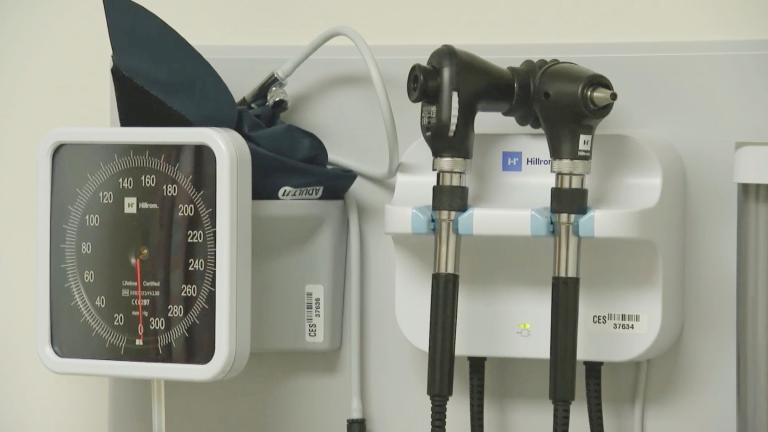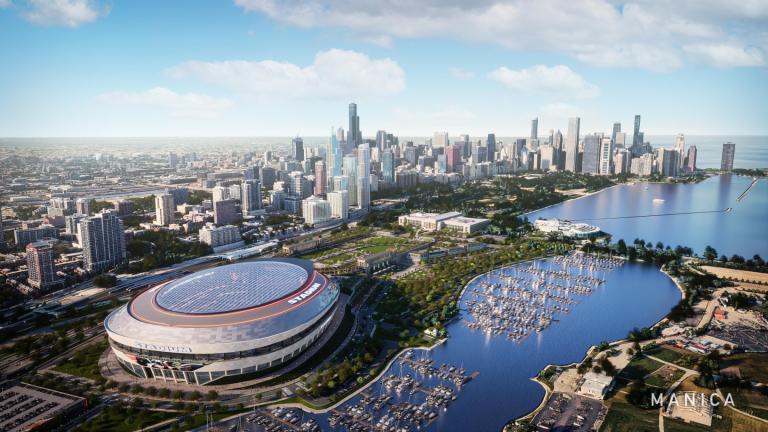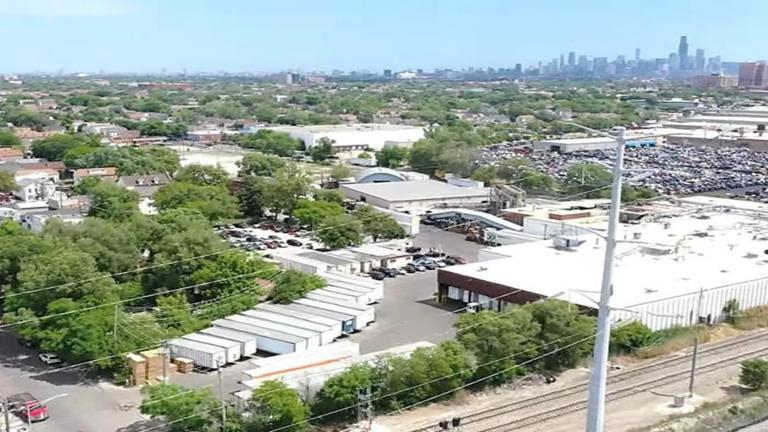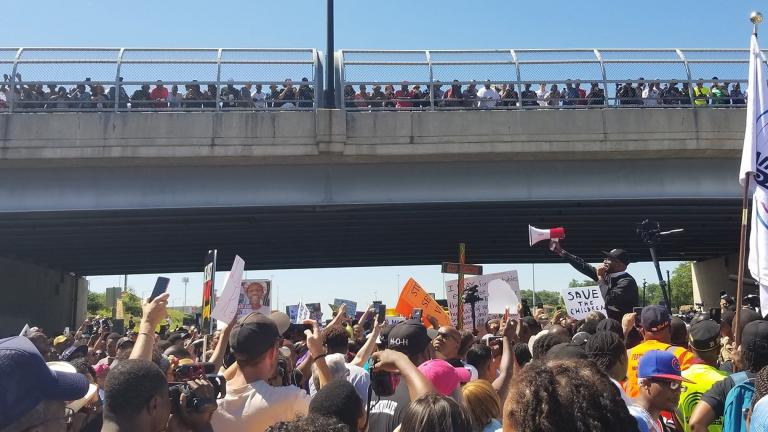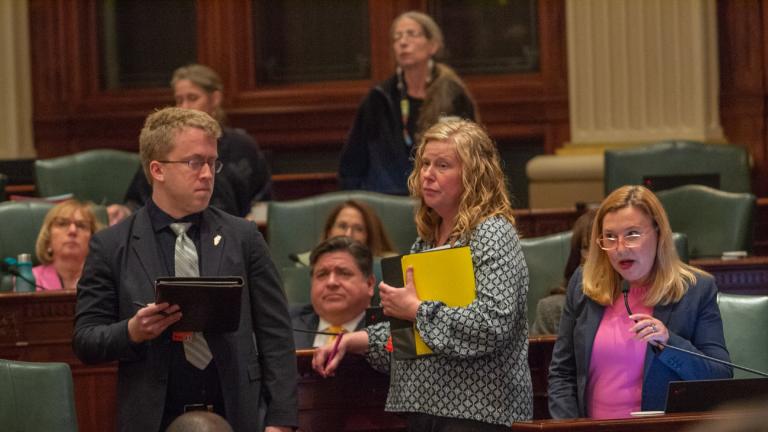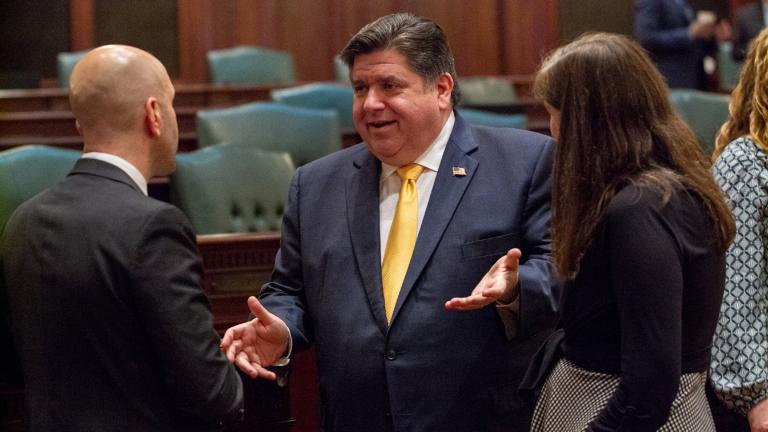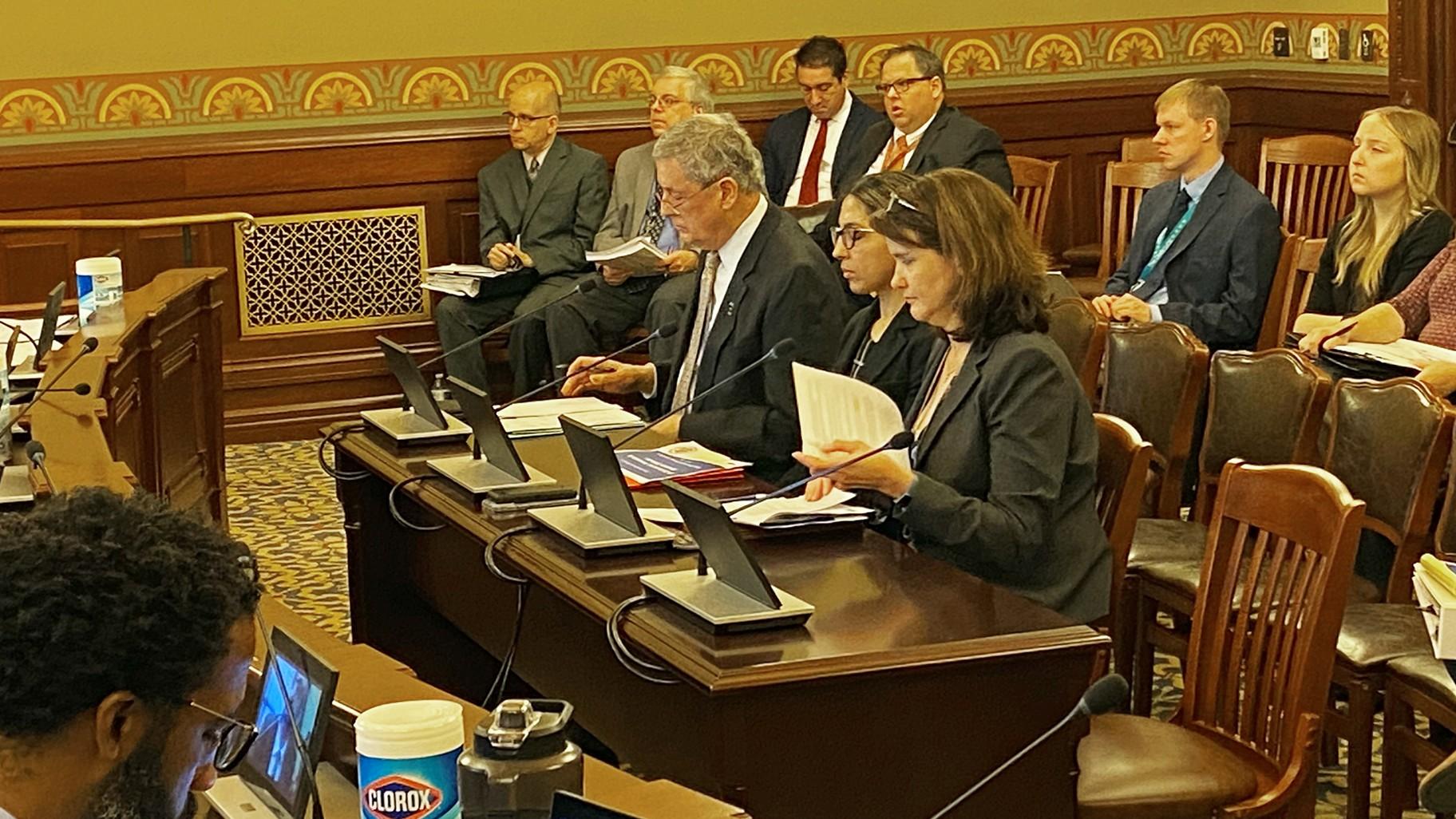 Illinois Department of Revenue Director David Harris, IDOR Chief Economist Rubina Hafeez and Governor’s Office of Management and Budget Director Alexis Sturm take questions from the House Revenue and Finance Committee in Springfield on Thursday. (Jerry Nowicki / Capitol News Illinois)
Illinois Department of Revenue Director David Harris, IDOR Chief Economist Rubina Hafeez and Governor’s Office of Management and Budget Director Alexis Sturm take questions from the House Revenue and Finance Committee in Springfield on Thursday. (Jerry Nowicki / Capitol News Illinois)
SPRINGFIELD – Gov. J.B. Pritzker’s revenue and budget directors took questions from a legislative panel Thursday on his proposals to generate another $1.1 billion in the upcoming fiscal year through various tax changes.
Pritzker’s proposed spending plan anticipates $52.9 billion in revenue, with new funds raised by increasing certain corporate tax rates, lowering personal and business income tax deductions and making other tax changes.
Corporate net operating losses
Pritzker’s main revenue-generating proposal looks to raise $526 million by extending a cap on corporate net operating losses that businesses can claim on taxes.
Current law allows businesses to claim up to $100,000 in losses on taxes, but it’s set to expire this year. Pritzker proposes extending the cap in fiscal year 2025, which begins July 1, but also increasing it to $500,000.
“The idea is that they will not be able to use those losses to reduce revenue,” Illinois Department of Revenue Director David Harris told the House Revenue and Finance Committee on Thursday. “So they’re limited. And thus, since they’re limited in terms of using those losses to reduce revenue that revenue is going to be now taxed.”
Harris said roughly 1% of corporations, or 1,175, are likely to be affected by the cap. That means the rest of the roughly 101,000 businesses would not have claimed enough losses for the cap to have affected their tax liability.
Sports betting tax hike
The governor proposed raising another $200 million by upping the tax rates paid by sportsbooks to 35 percent from 15%. When the General Assembly legalized sports betting in 2019, lawmakers dedicated all revenue from it to building infrastructure projects. But the governor’s plan would direct all extra revenue generated by the increase to the state’s General Revenue Fund.
Rep. Bob Rita, D-Blue Island, one of the architects of the original sports betting legalization plan, questioned the logic of the move.
“Wouldn't it make more sense to keep this under the capital fund, so that we fully fund the projects that we've been trying to get out the door?” he asked.
Pritzker’s Office of Management and Budget Director Alexis Sturm responded that video gambling and cigarette taxes that also fund infrastructure have outperformed expectations.
“The revenues that are coming into the capital projects fund have been sufficient to cover the debt service needs out of that fund,” she said, adding that new casino licensing fees and other casino revenues fund “pay-as-you-go” projects that don’t require borrowing.
Cap on retailers discount
Another proposal would generate $101 million by capping Illinois’ so-called “retailers discount.” Under state law, retailers receive a discount of 1.75 percent of the sales tax they collect as reimbursement for their efforts to collect them. The governor’s change would cap the amount claimed at $1,000 per month.
“We are currently – in terms of the amount of money that is provided under the vendors discount allowance – we are the most generous in in the nation,” Harris said, later noting that “virtually every state has some sort of a limit.”
Harris said only “2 to 3%” of retailers would be affected by the cap. But upon questioning from Rep. Tim Ozinga, R-Mokena, he added the change would have “a significant impact on very large retailers.”
The Illinois Retail Merchants Association, however, has pushed back against the administration’s assertions.
“Contrary to claims, this proposal does not just target large retail stores but would impact retailers of all sizes, from independent grocers to the corner hardware store,” Illinois Retail Merchants Association President and CEO Rob Karr said in a news release.
The proposal would also generate $85 million for local governments.
Road fund transfer
The governor also proposes raising $175 million by transferring some public transit expenses to the Road Fund, freeing up money in the state’s General Revenue Fund.
Sturm assured committee chair Rep. Kelly Burke, D-Chicago, that the use of Road Fund money for public transportation is allowable under the state’s “lockbox” amendment. Voters approved the lockbox amendment in November 2016, limiting the state to spending revenues generated by the motor fuel tax and transportation-related fees for transportation-related purposes.
Pritzker’s other revenue proposals include:
- Raising $25 million by distributing a portion of a tax on real estate transfers to the general fund instead of the Open Space Land Acquisition and Development Fund, which funds parks and recreation projects.
- Raising $93 million by adjusting the standard deduction amount to a lower level than would be used under current law. The deduction claimed by millions of Illinoisans would be capped at $2,550, rather than increasing to $2,775 as it was slated to, due to inflation.
Capitol News Illinois is a nonprofit, nonpartisan news service covering state government. It is distributed to hundreds of newspapers, radio and TV stations statewide. It is funded primarily by the Illinois Press Foundation and the Robert R. McCormick Foundation, along with major contributions from the Illinois Broadcasters Foundation and Southern Illinois Editorial Association.

